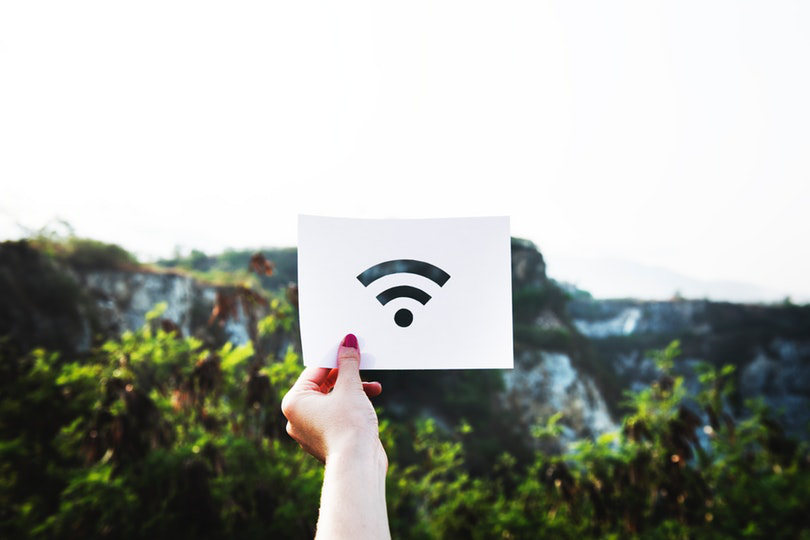There are a lot of determinants that impact the speed and reliability of your internet connection. The number of people sharing the internet connection with location and the devices you are using can be among such factors.

One of the biggest complaints nowadays is that the Internet is not fast, but rather than blaming the internet service provider, there are things that you can do to improve its performance. It is not possible to make your internet connection to be fast. Many people think that purchasing a modem will fix all their network problems, but they are wrong. What can you do to improve the speed of your internet connection in your business or your home?
The type of internet connection you are using in your business, whether DSL, cable, or fibre optic, will significantly determine the speed you will get. However, changing the internet service provider can also help you, but it comes with some expenses and temporary inconvenience as you wait for that connection to be made. These are the things that could be affecting your internet speed.
1. Connection type
The speed of your Internet depends mostly on the connection type you are. There are more than six types of connections available globally, including satellite, fixed wireless, cable fibre, DSL, and many more. In those all the connectivity types, there are many different technologies used, which means various speeds.
2. Hardware
The internet connection speed depends mainly on all the network equipment you are using; such as cable or router. For instance, an Ethernet internet connection is considered quicker than a Wi-Fi connection. Suppose you are using a Wi-Fi internet connection; your internet connection speed can decrease as more and more devices are connected to the same network. Besides, the internet connectivity may be slowed down by the hardware of a computer; for example, suppose you have a weak processor.

3. Virus and malware
When your PC is infected with malware, the malware might be running in the background and connecting the Internet without your permission and draining the laptop’s resources. Take caution by installing a reliable antivirus program and only get extensions from trusted sources.
4. The number of users
Internet connectivity speed tends to slow down when the number of people trying to connect to the Internet increases simultaneously. This happens during peak activity hours, such as during the night when everyone is home and tries to browse using Wi-Fi. This also applies to the situations where you connect Wi-Fi in crowded public areas where numerous people are using my network.
5. The software you are running.
If you are running various apps that require you to connect to the Internet simultaneously, the speed will naturally go slow. Some apps might run in the background without notice. Ensure that you check for auto-sync, auto-update or any backup settings such as file sharing apps that you use.
You need to ensure that you keep only the essential add-ons and the toolbar in your web browser, which can take up a share of the bandwidth you’re using.
6. Using wireless
Wireless connections can often result in slow internet connection speeds. Physical distractions like metal roofs and the concrete walls can slow down the wireless network speed as you increase the distance between you and the router; the further you go away, the weaker the signal. You can also find that another person is hitching a ride on your network ends, making it slow. To avoid this, ensure that you update your password to protect your Wi-Fi network.
Depending on the speed you’re getting from the wireless internet connection, it might be worth connecting to your router through a wired connection instead. This will increase the internet connection speed by cutting down the signal interference. You may also need to upgrade your wireless equipment or change the router channel.

7. Your plan
Your plan speed you select from Internet Service Provider is one of the significant factors that affect the overall internet speed. Note that when choosing an internet plan, ensure that you select a plan capable of reaching your desired speed.
8. Router location
One of the crucial choices that can make a difference is the router location. Ensure that you consider the geographical distance between the gadget and the rooter, its height from the ground, and its proximity to dense materials such as metal and concrete walls that can block signals. For you to get better results, it is recommended that you put your router in a place where the Internet is used frequently, above the ground level and away from obstructions such as concrete walls, blocks and roofs.
9. Neighbours
Similarly, places with a considerable amount of Wi-Fi networks suffer from low signal strength because of the conflict with frequencies. Rooters usually share several channels that can be transmitted to different frequencies. If you have a slow connection caused by either your neighbour’s router using the same channel, changing your router channel to another one can help. To achieve that, you should connect to your router’s admin tool from your laptop and check on your rooters instruction manual, which directs you how to do this.

10. Broadband connection
The connection provided by your internet service provider is one of the significant factors that can negatively impact your internet speed. This all comes down to the type of broadband connection available for you. Interestingly, your broadband speed will depend mainly on what the connection cable is made of.
11. Host server
When you browse the Internet for different sites, what you are doing is logging into a host server where that site is found. If the host server is underpowered, it is going to be slower than it should be. This slow internet speed is not an issue at your end but from the website you’re visiting.
12. Web browser
This might sound simple, but the choice of your web browser can also affect your connection speed. Just experiment with various web browsers such as Google Chrome, safari, Firefox, with sites that you visit more often and then see the web browser which delivers the fastest response.




